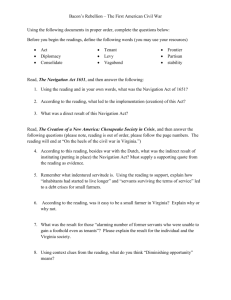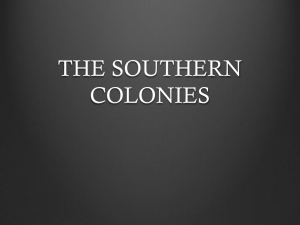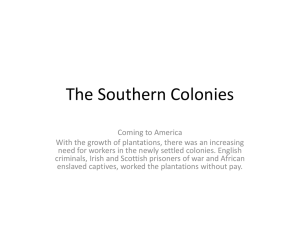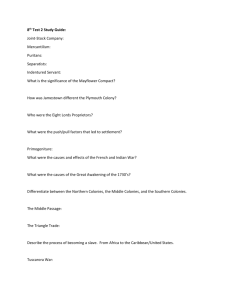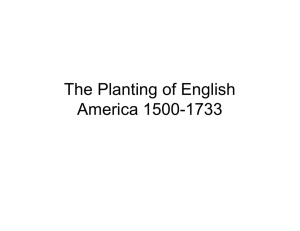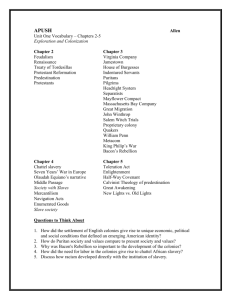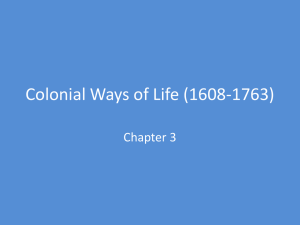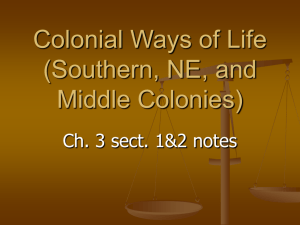The Southern Colonies
advertisement
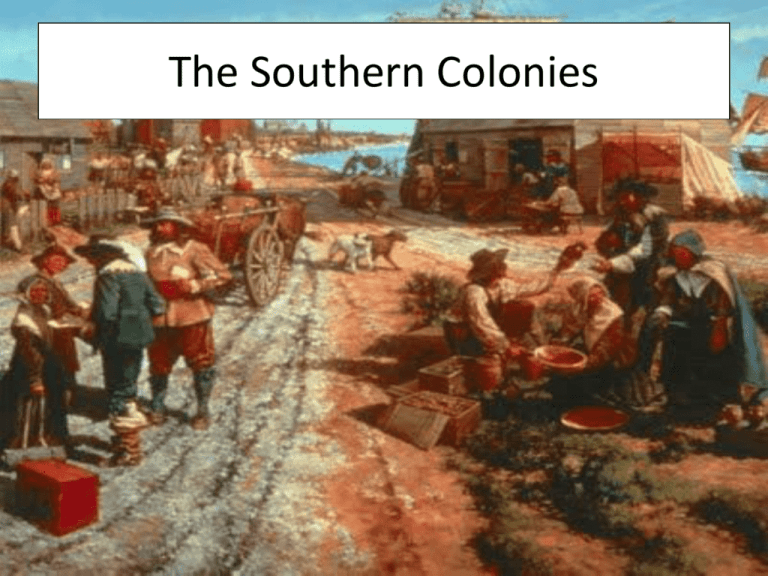
The Southern Colonies Southern Colonies Geography • Maryland, Virginia, North Carolina, South Carolina, and Georgia • The colonies share a coastal area called Tidewater and rolling hills called the Piedmont to the west • Climate is warm and humid, perfect for farming • Long growing seasons lead to growth of slavery Virginia Grows • By the 1670s, Virginia’s population has increased significantly • More land is available to grow tobacco due to Indian deaths • Wealthy farmers own most of the fertile land, while poor farmers struggle Slaves Grow and Harvest Tobacco Bacon’s Rebellion • Poor farmers move inland to find better land • Fighting broke out between the poor farmers and the Native Americans • The farmers demand that the governor of Virginia take action: he did nothing due to a profitable trade with NA for fur • Nathaniel Bacon organizes the farmers and attacks the NA; governor declares them rebels and they eventually burn down Jamestown • Bacon became sick and died; his rebellion showed that the gov. could not stop people from moving west Bacon’s Rebellion Nathaniel Bacon Confronts Virginia’s Governor Religious Toleration in Maryland • King Charles I grants a charter for a colony that acts as a safe haven for Catholics • Lord Baltimore founds Maryland and establishes the Act of Toleration in 1649 • All Christians were welcome and all Christian males could vote Lord Baltimore The Carolinas • In 1663, Charles II granted a charter for Carolina to be created • The north developed slowly and settlers lived on small farms with no waterways • The south developed quickly where slaves worked to grow sugar and rice • These two reasons eventually lead to Carolina splitting into two: North Carolina and South Carolina Georgia • Georgia is founded for two reasons: the English did not want Spain to spread north and James Oglethorpe wanted a colony that was a safe haven for debtors • Originally Georgia banned slavery but by the 1750s it was legal James Oglethorpe The Tidewater • The Tidewater regions in the southern colonies develop plantations and slavery • Tobacco becomes a huge cash crop • Society is split between slaveholders and slaves; small groups of wealthy and large groups of poor farmers The Backcountry • The backcountry was cut off from the coast • Most people lived on small farms • People in the backcountry cared less about rank • Many felt like the colonial government only cared about protecting the wealth of large plantation owners
